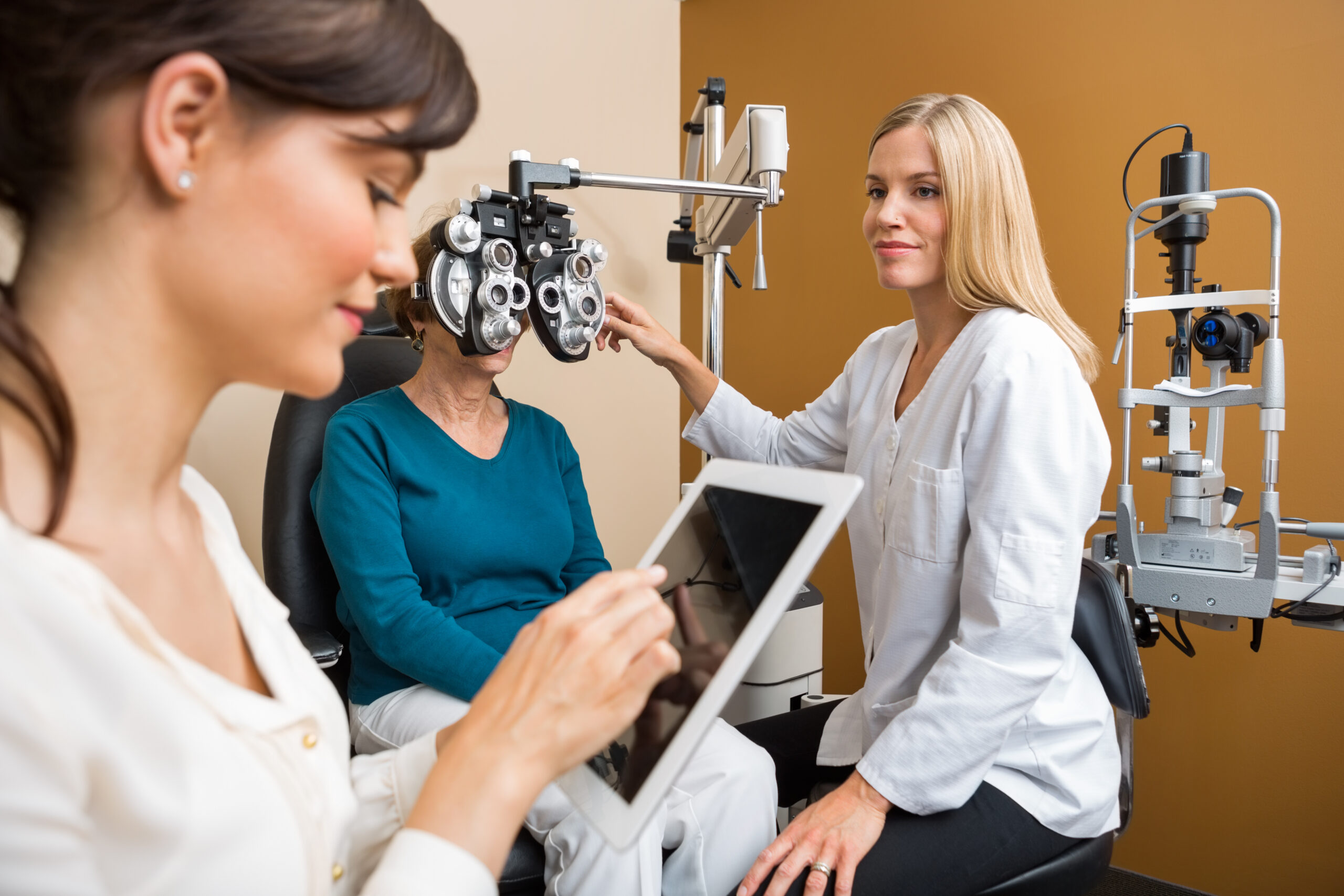In the ever-evolving landscape of healthcare, particularly within optical practice, the pursuit of excellence is not just a goal—it’s an ongoing journey. At the heart of this journey lies Continuing Professional Development (CPD), a crucial pillar for optometrists and optical practitioners dedicated to delivering top-tier care.
This blog explores the multifaceted role of CPD in the optical profession. We’ll delve into how CPD not only enhances clinical skills and knowledge but also empowers practitioners to adapt to new technologies and embrace emerging best practices.
Benefits of CPD for Optical Professionals
Enhanced Skills and Knowledge:
Staying current with the latest advancements in optical practice is essential, and CPD ensures that you continually build on your knowledge and skills, enabling you to offer the highest quality care. As the optical industry evolves, with new technologies and innovations regularly emerging, CPD helps you seamlessly integrate these advancements into your practice. Whether you’re learning to use new diagnostic tools or incorporating digital solutions for patient care, ongoing education through CPD keeps your practice up-to-date, efficient, and aligned with the latest industry standards.
Career Advancement:
Engaging in CPD opens doors to career progression. As you expand your expertise, you may qualify for higher-level positions, specialisations, or leadership roles within your practice or organisation. It also enhances your competitiveness in the job market, as employers often seek professionals who demonstrate a commitment to their field through continuous learning.
Professional Credibility:
Consistently participating in CPD activities bolsters your professional reputation. It showcases your commitment to maintaining high standards in your practice and your dedication to delivering the best possible care to your patients. This credibility can lead to greater trust from both patients and colleagues, further establishing you as a respected expert in your field.
Improved Patient Outcomes:
The ultimate goal of ongoing learning is to improve patient care. By staying informed about the latest developments in optometry and related fields, you’re better equipped to diagnose, treat, and manage a wide range of eye health issues. This not only leads to better patient outcomes but also increases patient satisfaction and loyalty.
Compliance with Regulatory Requirements:
Participating in CPD is often a mandatory requirement for maintaining your professional license. Regularly updating your knowledge and skills through CPD ensures that you remain compliant with industry regulations and avoid any legal or professional issues that could arise from non-compliance.

CPD Requirements by the GOC
The General Optical Council (GOC) mandates that optical professionals complete specific Continuing Professional Development (CPD) requirements to stay current with industry advancements. These activities must span four core domains: Professionalism, Communication, Clinical Practice, and Leadership & Accountability. By December 31, 2024, which marks the end of the current CPD cycle, all dispensing opticians and optometrists must accrue at least 36 CPD points, including 18 interactive points and a peer review. Dispensing opticians on the contact lens specialty register must also earn 18 points in the contact lens domain and complete a contact lens peer review.
CPD Opportunities for Optical Professionals
CPD activities for optical professionals in the UK can be broadly categorized into formal and informal options, each offering unique learning opportunities.
Formal CPD Options
Formal CPD activities are structured and typically involve direct interaction with peers or educators. These activities, often organised by accredited providers, are essential for meeting professional standards.
- Workshops and Seminars: These are hands-on learning sessions where optical professionals can engage with the latest techniques and technologies. For example, the Association of Optometrists (AOP) Workshops offer practical sessions on various aspects of optometry, from advanced diagnostic methods to patient care strategies.
- Conferences: Attending industry conferences allows professionals to hear from leading experts, participate in discussions, and network with peers. These events are ideal for learning about the latest research, innovations, and trends in the field.
- Accredited Courses: Online or in-person courses that focus on specific areas of optometry are another excellent formal CPD option. For example, The College of Optometrists offers accredited courses that provide comprehensive knowledge and skills, often leading to certification.
- Lectures: Participating in specialised lectures allows professionals to gain in-depth insights into particular topics within optometry, delivered by leading experts in the field.
Informal CPD Options
Informal CPD activities are more flexible and allow professionals to tailor their learning to their specific needs. These activities may not always result in formal qualifications, but they are invaluable for continuous professional development.
- Peer Discussions: Engaging in discussions with colleagues, whether through professional networks like Optometry Today forums or local peer review groups, provides valuable insights and shared knowledge that enhance clinical practice.
- Self-Directed Learning: Reading articles, journals, or books on optical practices is a popular informal CPD method. These resources offer a wealth of information on the latest research and developments in the field.
- Online Resources and Webinars:Utilising online platforms such as Eyecare Education for webinars and educational videos offers a convenient way to stay updated. These resources are often available on-demand, making them perfect for busy professionals.
- Reflective Exercise: Maintaining a reflective journal, where you document personal clinical experiences and identify areas for improvement, is an essential informal CPD activity. In the current cycle, it is mandatory to engage in reflective practice, which involves meeting with a peer to review the CPD activities you’ve completed over the three-year period. Together, you assess what you’ve done, identify any gaps in your knowledge, consider what you may need to focus on in the next cycle, and reflect on how this has influenced your practice. This practice not only aids in self-assessment but also fosters continuous personal and professional growth.

How to Incorporate CPD into Your Practice
Time Management: Balancing CPD with your daily responsibilities can be challenging. Consider scheduling regular time slots for CPD activities or integrating learning into your routine workday to ensure consistency.
Selecting the Right CPD Activities: Choose the activities that are relevant to your role and interests. For example, if you’re an optical dispenser, workshops on new lens technologies or patient communication techniques may be particularly beneficial.
Building a CPD Plan: Create a structured plan that outlines your learning goals and tracks your progress. This plan can help you stay organised and ensure that you meet your professional development objectives.
Conclusion
Continuing Professional Development (CPD) is more than just a regulatory requirement; it’s essential for maintaining excellence in optical practice. By committing to ongoing learning, you not only refine your skills and expand your knowledge but also enhance the quality of care you provide to your patients.
At Verovian Optical Agency, we believe that your career deserves the best opportunities. While we specialise in offering amazing job opportunities to optical professionals across the UK, we encourage you to make continuous learning a cornerstone of your career. Explore the wide range of CPD opportunities available, create a structured plan for continuous learning, and remain dedicated to achieving the highest standards in your practice. Register with us today, and let’s take your career to the next level together!





